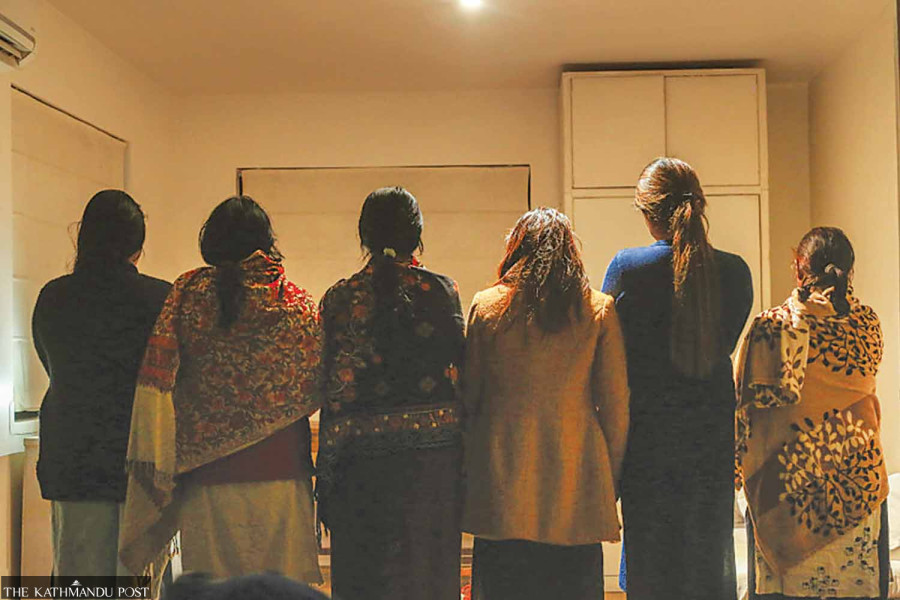National
Government asked to respond to the plight of victims of Nepal conflict-era sexual violence
Twelve organisations working on human rights have pointed out flaws in the transitional justice process and called for making it gender-friendly.
Post Report
As the process to select office bearers in the transitional justice (TJ) bodies begins, various rights groups have demanded that the government pay due attention to insurgency-era victims of torture, rape and sexual violence.
Representatives from 12 organisations, including the Conflict Victim Women National Network, on Friday submitted an 18-point recommendation to Law Minister Ajay Chaurasia to make the transitional justice process gender friendly and responsive to the needs of conflict-related sexual violence (CRSV) victims.
Stating that lack of gender sensitivity, inclusivity, confidentiality and guarantees of security has made such victims unable to come forward to seek justice, they have demanded to guarantee the issues first-hand.
Successive governments post Comprehensive Peace Accords-2006 have introduced some interim relief programmes to conflict victims, but the survivors of torture, sexual violence and rape have been left out.
In their recommendations, the organisations advocating for the rights of CSRV have pointed out some flaws in the Enforced Disappearances Enquiry, Truth and Reconciliation Commission Act, amended in August last year.
“The act lists serious sexual violence as a crime of serious nature, which means it doesn’t cover sexual violence. International human rights law and humanitarian law recognise it as a serious crime. The qualifier ‘serious nature’, therefore, needs to be removed to ensure all victims of sexual violence can claim their right to justice,” reads one of the recommendations.
The rights organisations also say the three months window for the CRSV victims to lodge their complaints at the Truth and Reconciliation Commission (TRC) is too short. They have demanded either to extend or eliminate it arguing the international law does not impose a statute of limitations on such serious human rights violations.
As hardly 314 among 63,700 cases with the TRC were related to CRSV, the amended Act allows three months to file the complaints. The rights advocates claim their numbers are in thousands.
“The specialised units within the TRC must include experts with capabilities to handle such cases with appropriate sensitivity and thoroughness,” reads another recommendation.
Stating that Article 38 of the Constitution of Nepal envisions proportional representation of women in all state bodies, the rights advocates claimed the amended law fails to ensure the effective participation of women in transitional justice mechanisms, nor does it guarantee the appointment of an adequate number of women staff and experts.
“The recruitment of women in transitional justice mechanisms must be clearly stipulated and all personnel involved should undergo training on gender sensitivity and conflict-related gender issues,” one of the recommendations states.
Formed on March 24, the committee to select the chairpersons and the members for the truth and the disappearance commissions has already started its selection process. On Friday, the committee made public its working procedure seeking public feedback. It has called for suggestions on it until Tuesday.
The former chief justice Om Prakash Mishra-led panel will call for applications from the aspirants after finalising the procedure incorporating the suggestions. It will then publish the full list of the applications first which will be followed by a short-list. Final recommendations will be after their interview and presentation.
Earlier commissions formed in 2015 and 2020 had two women each though the Act says there must be at least one woman. The present committee, therefore, cannot overlook the past practice of having two women in each commission.
Providing adequate budget, gender-sensitive protocols and structures to facilitate a safe environment where victims feel secure in seeking justice has been listed as another demand.
“The staff must be capable of addressing sexual violence and rape cases in a way that ensures confidentiality, security and respect for the dignity of the victims,” it further said. “It is necessary to ensure the identity, privacy and safety of all victims, most importantly CRSV, during the entire process.”




 11.12°C Kathmandu
11.12°C Kathmandu













